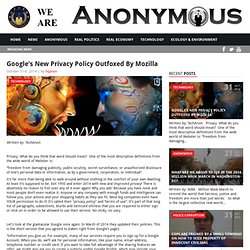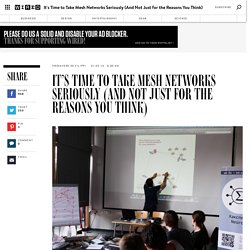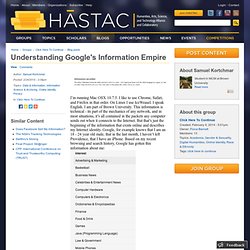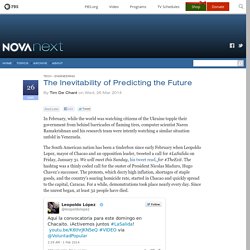

What Is Enlightenment?: Google, Wikileaks, and the Reorganization of the World. Google’s New Privacy Policy Outfoxed By Mozilla AnonHQ. October 31st, 2014 | by hqanon Technology Written by: TechAnon Privacy.

What do you think that word should mean? One of the most descriptive definitions from the wide world of Webster is: “freedom from damaging publicity, public scrutiny, secret surveillance, or unauthorized disclosure of one’s personal data or information, as by a government, corporation, or individual”. Al Gore says Silicon Valley is a “stalker economy” By Yasha Levine On June 11, 2014 Sarah Lacy kicked off the Nashville Southland Conference on Tuesday morning by interviewing former vice president Al Gore.
I was in the audience listening to the interview and was surprised and impressed with his willingness to address serious tech-related issues head on. He called NSA’s mass surveillance operations unconstitutional, quoted from James Bamford’s book “The Puzzle Palace,” criticized the ongoing push to privatize public education and repeatedly talked about America’s yawning wealth inequality and the hijacking of its political system by the ultra rich. He also argued against the idea that charity can replace government, and dismissed the widely held belief in the tech world that capitalism and markets are somehow more efficient than democracy. Let’s nationalize Amazon and Google: Publicly funded technology built Big Tech. They’re huge, they’re ruthless, and they touch every aspect of our daily lives.

Corporations like Amazon and Google keep expanding their reach and their power. Despite a history of abuses, so far the Justice Department has declined to take antitrust actions against them. But there’s another solution. That argument’s already been made about broadband access. In her book “Captive Justice,” law professor Susan Crawford argues that “high-speed wired Internet access is as basic to innovation, economic growth, social communication, and the country’s competitiveness as electricity was a century ago.” Broadband as a public utility? But why stop there? The Big Tech mega-corporations have developed what Al Gore calls the “Stalker Economy,” manipulating and monitoring as they go. In fact, they’re already doing it. Free is a Lie.
It’s Time to Take Mesh Networks Seriously (And Not Just for the Reasons You Think) The internet is weak, yet we keep ignoring this fact.

So we see the same thing over and over again, whether it’s because of natural disasters like hurricanes Sandy and Katrina, wars like Syria and Bosnia, deliberate attempts by the government to shut down the internet (most recently in Egypt and Iran), or NSA surveillance. After Typhoon Haiyan hit the Philippines last month, several towns were cut off from humanitarian relief because delivering that aid depends on having a reliable communication network. In a country where over 90 percent of the population has access to mobile phones, the implementation of an emergency “mesh” network could have saved lives.
Compared to the “normal” internet — which is based on a few centralized access points or internet service providers (ISPs) — mesh networks have many benefits, from architectural to political. Understanding Google's Information Empire. I’m running Mac OSX 10.7.5.

I like to use Chrome, Safari, and Firefox in that order. On Linux I use IceWeasel. I speak English. I am part of Brown University. This information is technical - its part of the mechanics of any network, and in most situations, it’s all contained in the packets any computer sends out when it connects to the Internet. Inside the algorithms that are predicting the future — NOVA Next. In February, while the world was watching citizens of the Ukraine topple their government from behind barricades of flaming tires, computer scientist Naren Ramakrishnan and his research team were intently watching a similar situation unfold in Venezuela.

The South American nation has been a tinderbox since early February when Leopoldo Lopez, mayor of Chacao and an opposition leader, tweeted a call for #LaSalida on Friday, January 31. We will meet this Sunday, his tweet read, for #TheExit. The hashtag was a thinly coded call for the ouster of President Nicolas Maduro, Hugo Chavez’s successor. The protests, which decry high inflation, shortages of staple goods, and the country’s soaring homicide rate, started in Chacao and quickly spread to the capital, Caracas. For a while, demonstrations took place nearly every day. Lopez’s #LaSalida tweet was probably among those which EMBERS analyzed, and the meaning of its uncoded message was almost certainly clear to the sophisticated system. This Company Can Predict The Future. For most businesses, it would be a PR nightmare: A major technology company had just released a software update that caused its tablet to crash.

Consumers were beginning to voice their complaints online. But their nascent grumblings were spotted early by Blab, a growing analytics startup that hunts for timely topics before they trend on the web. Blab warned the tech company that the conversation would escalate from murmurs to shouts, primarily on Facebook and news blogs, in approximately 40 hours. “So we gave the customer a heads-up: ‘You have 40 hours to put ads in place before all of the blogosphere starts talking about this issue,’” recalls Blab founder and CEO Randy Browning.